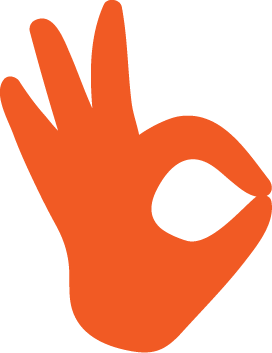Finding the right therapist can seem like a daunting process. For a lot of people finding a therapist is like dating, you’re rarely going to get it 100% right the first time.
As stated earlier, when finding mental health help (especially a therapist) it’s important to keep an open mind and try your options until you find a solid fit for you.
For this section, we’ve interviewed multiple therapists across different practices, and plan on interviewing more to give you the option to see what each kind of therapy is like and where you might want to start off. We are aware there are other factors when finding help such as cost and accessibility which we will do our best to touch on later in this resource.
Beginning the Journey with Traditional Therapy
Through resilience and fortune, Golder uncovered his own clarity, trading confusion for confidence and purpose. Listen to how Golder guides his clients through life’s changes and challenges. An outdoor enthusiast, a seeker of novelty, and a connoisseur of joy, Golder epitomizes life beyond comfort zones.
Take a listen and understand Golder’s philosophy: unveil your essence, embrace change, and forge a connection while uncovering your true potential.
Traditional Therapy
The first therapist that we had the privilege of interviewing is Mary Gibson. Mary is a licensed marriage and family therapist (LMFT) who specializes in substance abuse. She has been through extreme hardship and struggle herself and uses her experiences to help change the lives of others — including Charlie Covina. Charlie loved Mary like family, and we are beyond grateful we got the opportunity to meet with someone so close to him.
From tools and coping mechanisms, to understanding the harms of substance abuse, we got to dig in to some crucial topics regarding mental health. Please watch the video for our interview — transcription and more education to come!
The results driven process of mental health coaching typically leads with your coach guiding you in present day problems or situations you’re currently facing. There is less of the digging into the past like traditional therapy. Instead, there is usually a step-by-step process or walkthrough offered to take on whatever you’re facing whether that be a life change, coping with tragedy, or trying to figure out yourself and next steps you’d want to take.
A lot of people tend to trend towards mental health coaching if they’re not fully ready to commit to the process that therapy is. It’s a quick start for addressing things in your life you may have been pushing aside, and get to helping yourself. In the attached video, we interviewed Golder Goldstein who has been in the coaching space since 2019. From the pinnacle of a seemingly successful path, Golder felt an irksome void, spurring a quest for greater fulfillment.
Mental Health Coaching
Outside of traditional therapy there are a ton of different options to find help. One of the more popular alternative methods is mental health coaching — just like you’d have a personal trainer for your physical health, mental health coaching helps you train your mind. Like therapy, mental health coaching is typically a 1:1 session with a coach and is focused on an open dialog. Where they separate is in the style of how they approach mental health and the way goals are typically set.


